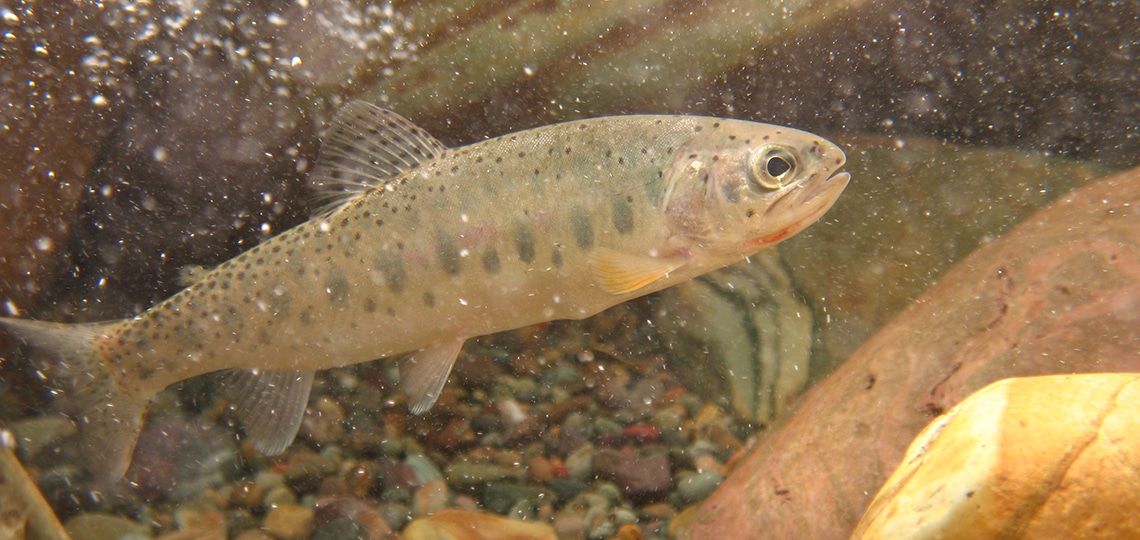VANCOUVER – Ecojustice and Wildsight are welcoming Minister of Environment and Climate Change Jonathan Wilkinson’s decision to designate Teck’s Castle Mountain coal mine expansion for an impact assessment.
Teck Resources Ltd.’s Castle Mountain project is a proposed expansion of one of the company’s steelmaking coal mines in the Elk Valley, which is located in the Rocky Mountains in southeast British Columbia. On behalf of Wildsight, Ecojustice sent a written request to the minister in June, expressing concern about the project and asking him to designate the expansion for an impact assessment.
The groups say expanding the mine would worsen selenium pollution for hundreds of kilometres downstream. Selenium would flow from the mines for many centuries and has been implicated in the decimation of at-risk populations of westslope cutthroat trout.
Representatives from Ecojustice and Wildsight released the following statements in reaction to Wilkinson’s decision.
Ecojustice lawyer Randy Christensen said:
“Today’s decision is an important first step in addressing a pollution problem that spans borders and decades.
“Selenium pollution, like that from Teck’s Elk Valley mine, can poison waterways for thousands of years. This is concerning for Canadians and for our American neighbours downstream from Teck’s Castle Mountain mine. Furthermore, Ecojustice remains concerned about how mining, transporting, and using coal to produce steel impacts the climate.
“A federal impact assessment will help address these concerns and give organizations and members of the community the opportunity to present arguments and evidence. Ecojustice was also pleased to see the minister’s decision acknowledges the coal mine expansion may have adverse impacts on Indigenous rights. Together with our clients, we are calling for a thorough assessment process that will meaningfully engage and protect those rights.”
Lars Sander-Green, Mining Co-ordinator at Wildsight, said:
“Castle would take down an entire mountain, could send dangerous water pollution hundreds of kilometres downstream and cut off travel routes for bears and other wildlife. With Teck’s five existing mines in the Elk Valley and decades of mining already permitted, we desperately need a real assessment of the overall impacts from so much mountain-top removal coal mining in one valley.
“Just last week, scientists announced that the amount of selenium pollution in Lake Koocanusa should be kept to less than half of what Teck is already sending downstream. If Teck can’t show how they can reduce selenium pollution downstream of their mines in the long-term—that means without expensive short-term fixes like water treatment that just push the problem down the road—then no reasonable environmental assessment should approve this mine.
“B.C.’s past environmental assessments for coal mines in the Elk Valley haven’t grappled with the long-term dangers of water pollution, so we’re very happy to see Minister Wilkinson acknowledge people’s concerns that B.C.’s environmental assessments and permitting aren’t keeping our rivers and fish safe.”
About
Ecojustice goes to court and uses the power of the law to defend nature, combat climate change, and fight for a healthy environment. Its strategic, innovative public interest lawsuits lead to legal precedents that deliver lasting solutions to Canada’s most urgent environmental problems. As Canada’s largest environmental law charity, Ecojustice operates offices in Vancouver, Calgary, Toronto, Ottawa, and Halifax.
Wildsight works locally, regionally and globally to protect biodiversity and encourage sustainable communities in Canada’s Columbia and Rocky Mountain regions. They’ve been working for decades to defend clean water and wildlife in the Elk Valley and BC’s southern Rocky Mountains.

